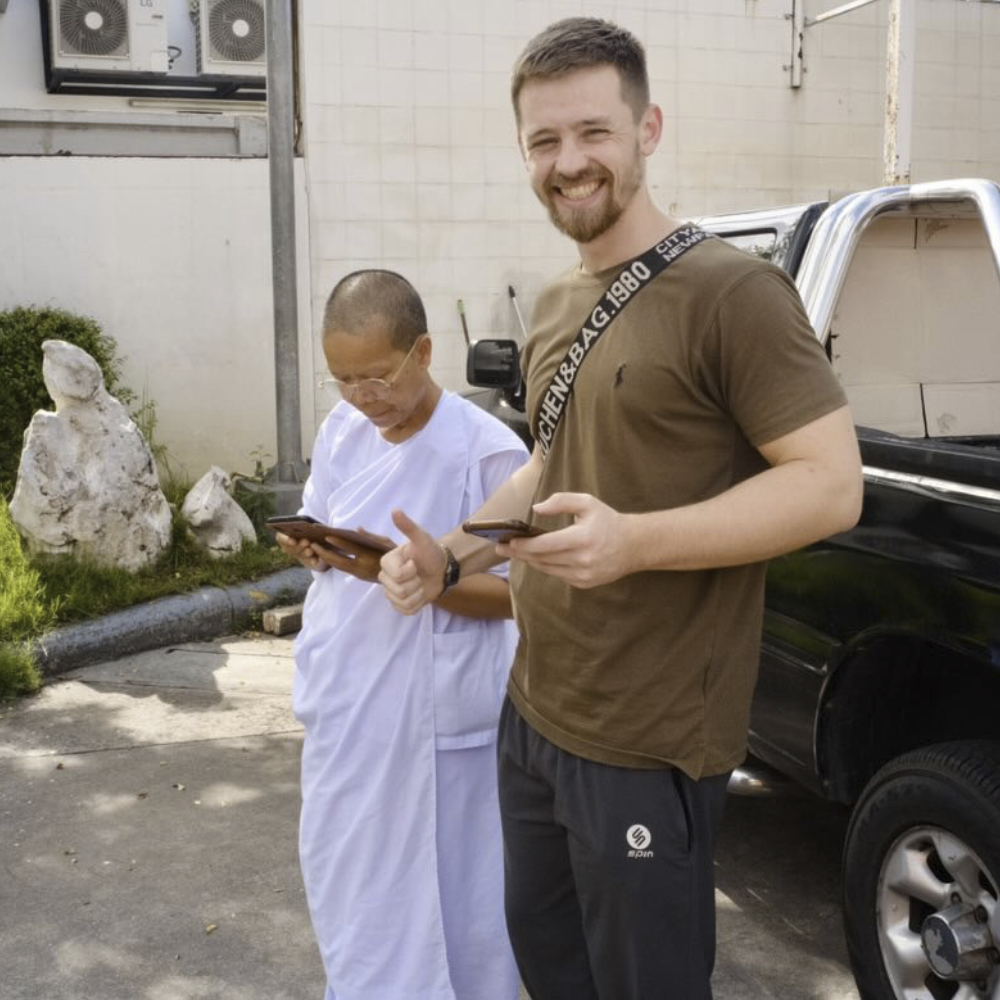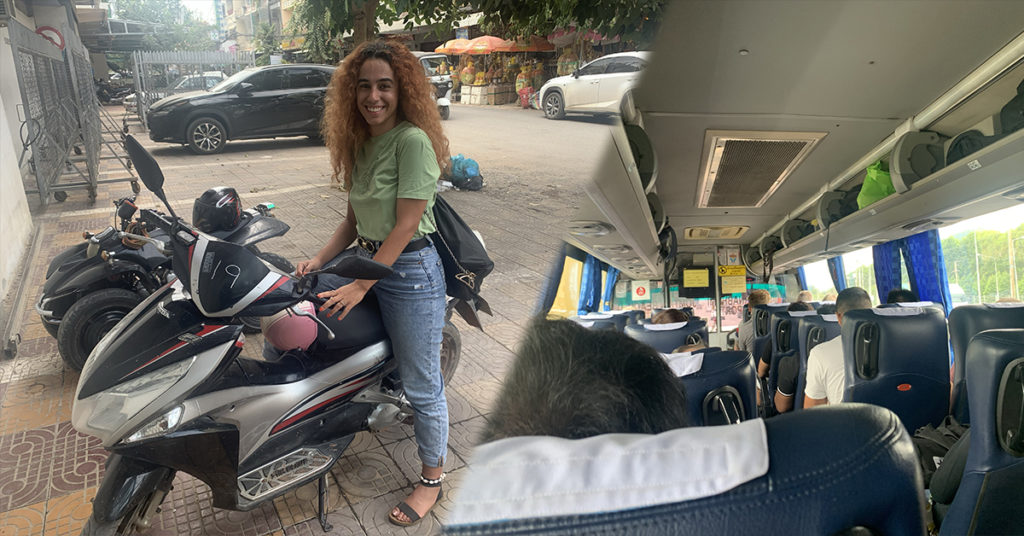Every year in April, just before the official Thai New Year (Songkran), all men aged 21 are eligible for a special draw (Monks too) – a card game that may change the course of their lives complete, and a card game that many are scared of. We went to one of the events where the Thai Military uses a lottery system to draft young men into the Army, Navy, or Air Force, and asked people what they thought of the tradition. In this article, we’ll share what we found and what was experienced.
If you’d prefer to watch a video of the event, we recorded it and took interviews with the local Thai men who participated to get their thoughts on the tradition. You can watch that below
Fainting, or Freedom – The Lottery Draw Event
From the 1st – 11th of April every year, all men aged 21 must report to armed forces recruitment offices around Thailand. This includes Monks, Trans people without a proper sex change, the common man, and even famous people!
They have 3 options:
- Volunteer to reduce their sentencing (2 years down to 6 months)
- Try their luck in a card game (pull a black – you’re free, pull a red – it’s 2 years for you son!)
- Join the Ror Dor (the Thai equivalent of the territorial army, which most Thais do for 3 months while they study)
For those that don’t volunteer, they have to attend a lottery draw, held in the province they are registered closest to. This happens all across Thailand, with different provinces hosting the lottery on different dates. Some will use local village halls, and others will be held in private rooms in a shopping centre or mall. We went to watch one of the events in a small village called “Nong Waeng”.
So why do they hold this draw?


Every year the Thai army has to fill a quota of close to 70,000 people, with 500,000 men being called for selection. Usually, it gets half of its men from eager volunteers, and the other half from this lottery draw, but this fluctuates each year depending on the number of volunteers. With each year, the volunteer rate gets higher, with a new plan to entice recruits to join freely, rather than chance it at the draw, and plans to remove the draw completely in the future.
The way it works is the same for each district but differs slightly due to some calculations.
Young men, monks, and trans women attend beforehand, some with reasons for exemption, and others going to luck the draw. They line up outside the hall and are each given a number, waiting to be called into the hall to sit. Once they have all been called and seated, the host starts the ceremony first calling out the number of people who volunteered in the district, and then the remaining quota left to fill for the village or province. Then, the audience will find out the number of black cards and red cards in this year’s draw.
The atmosphere in the hall is tense as families gather along the sides, to watch their sons be called to the front. The cards are then presented and poured into the large black jar, which they will later be picked from. The army officer steps forward, secures the lid, and shakes the jar vigorously before handing it to a monk for a blessing as a kind of joke to lighten the mood, given the moment’s weight – quite ironic, considering that shortly, he himself will draw a red card that will give him 2 years of mandatory service which may not align with Buddhist values…
The first candidate is then called to the front. He walks up nervously, puts his hand in the jar, and picks a card. There’s a silent tension as everyone waits for the result. “Black!” He’s free to go, jumping for joy and celebrating to show his happiness, as people are cheering him on.
When the first “red” is called, there’s a very different reaction to what you might expect… people erupt in ecstatic cheers for the red card. Is it because it lowers the odds of their son going? Or are they genuinely pleased to see a young man serve his country? While people are cheering the red card, some young men collapse to the floor in despair, their mother’s crying at the sidelines, while others are jumping for joy.
It’s quite a lot like a sporting event of some kind and the crowd has the aura of something similar to what you’d find at a football match.
Losing Time and Money
For many the conscription can set them back 2 years in terms of earning power, and most people we spoke to don’t want to go, thinking that military service should be a choice.
When asked how he felt before the draw (he drew a red, but didn’t want to speak after), one person told me:
My brother said it was good, but people say they don’t want to go (Army). Some people regret the future… if they work outside for two years, they earn more. If they go inside… it’s like… if you don’t earn money, you’re wasting time. It’s wasting the future. No one feels scared, they just don’t want to lose their future.

Supposedly the draft can lead to a financial loss of up to 340,000 baht over two years, and with many young 21-year-olds starting work early to support family, or support their sick loved ones, some said it can be difficult to recover from this and can be a real strain on many who are called for mandatory service.
When you join you get 9,000 baht ($247 USD), after deduction (what they need to pay before joining) you’re left with 6,000 baht ($164.85 USD). It’s not enough for me. I can’t help but think… if we go to the military, we have a lot of things to pay for right? I don’t really want to lose my future.
Some are already earning 12-14,000 baht per month at that age ($378.72), so it’s quite a big hit financially for a lot of the young men who have to complete service. But, on the flip side, there are also benefits of free accommodation and food, and some (who are addicts) get put on drug rehabilitation courses. So, it can be a good and a bad thing for people, it just depends on the situation.
When asked what he thought about the draft another told me:
Truthfully… I think, it’s more like forcing people to be drafted into the military. I don’t really agree with it.

Even though it is mandatory, there are ways you can reduce your sentencing. But, if you’re poor and uneducated (don’t have a high school diploma) there’s no real way to skip the service and you have to do 2 years. So, if you’re in this position, you just have to make merit at the temple beforehand, hope and luck it out on the draw day.
When asking a mother about her son, she told me:
He doesn’t want to be in the army, and he doesn’t want to volunteer. It’s all about luck. If he’s conscripted, he only has to go for 6 months (actually 1 year), because he has an education. I feel very excited, because he gets to be a solider! Being a solider is tough, it depends on the person. Some like it and apply. Some aren’t ready and don’t want to go.

‘Dodging The Draft’
There are ways you can get out of the 2 year mandatory service, both legal and illegal.
There are reports online of people bribing recruitment officers to find something wrong with them, so they don’t have to go to the lottery day, but there is little evidence to suggest this is true as clearly no one would want to talk openly about doing it, due to the three-year prison sentence, if found out.
Another way to reduce your service is with your University Education, and volunteering upfront. If you do this, you are given 1 year initially but are able to request a reduction, which will cut your service to 6 months.
There are also other options such as the Ror Dor (Thai Territorial Army/Reserves), which allow you to do your service alongside your studies, and then you never have to go to the lottery draw. Most opt for this option, as the training is more watered down, and you don’t even have to live in the barracks.
If you don’t have a high school diploma, however, you have to do the 2 years of mandatory service, which might not entirely be a bad thing, due to the army offering some forms of education and discipline to young recruits that might help them later in life.
Going Back In Time – The History Behind The Tradition
The military draft dates back to the Siamese Kingdom, but back then, a different system called the “ahmudan” system was used to conscript men into the Siamese Army. This would require chiefs to supply a quota of men for battle during times of war, based on the number of men in their jurisdiction (pretty similar to the card process today, but completely mandatory).
These conscripted troops were said to have been driven into battle forcefully and had some of the highest desertion rates of all the troops in the military.
In 1905 the conscription method changed to add the new lottery method to the draw, and since this date, it hasn’t changed. As of 2024, the Thai Defense minister has said that the military will be phasing out the lottery draft, and it should no longer exist by 2027.

I’m Harry – and I was tired of the same old “10 best places I’ve never been but I’m writing about for some reason” blog posts. So… I’m a young traveller on a mission to travel the world and share my true, unfiltered experience, including all the gristly details. From packing my life into one bag for a year, to traveling Vietnam by motorbike, to sorting out Visas for specific countries – I’ve done it all, am doing it all and only give my advice on things I have done – not regurgitated cr*p from another source *cough* most publications *cough*. So bear with us! This project will take some time to grow, and will take a fair bit of money. But I’m determined to make it the single best source of information about traveling on the internet.

